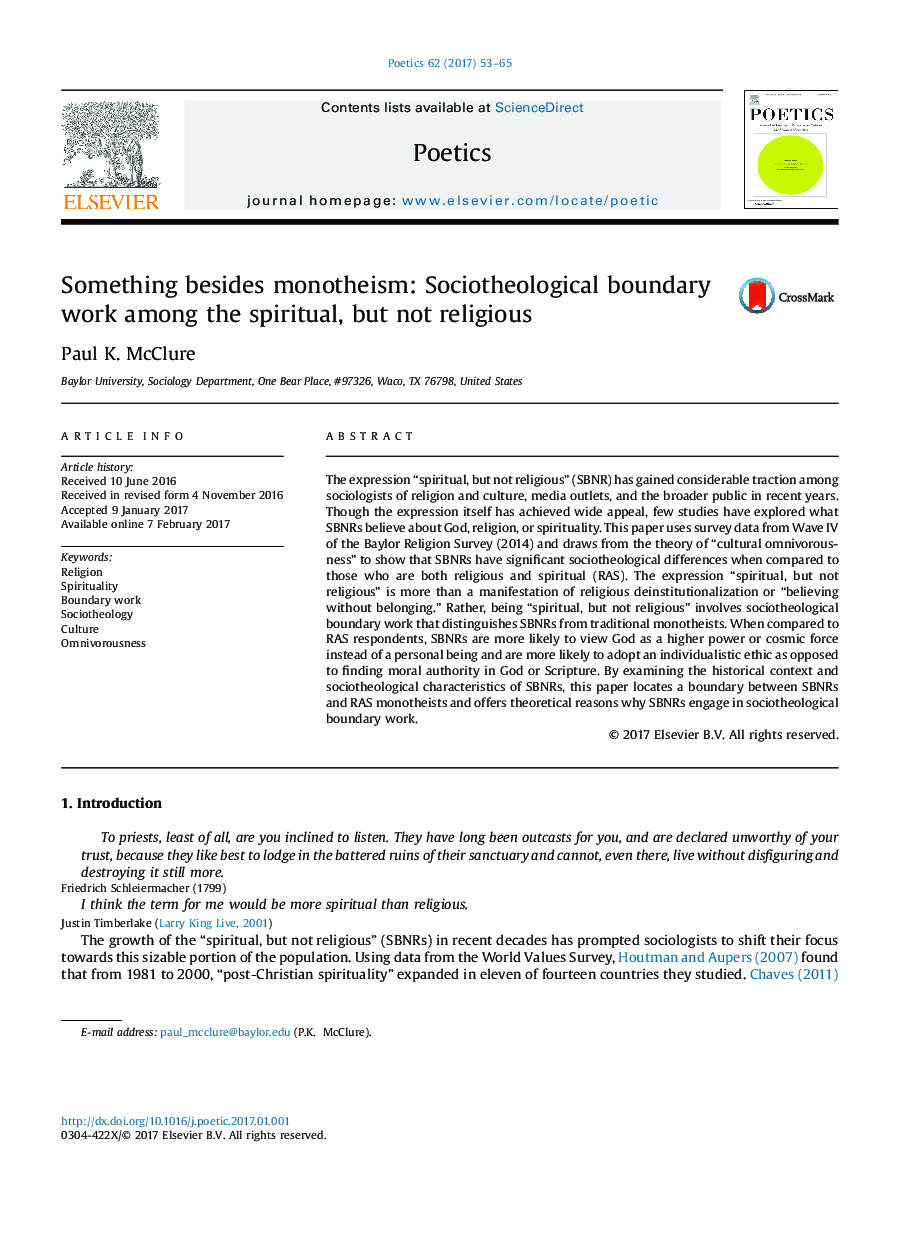| کد مقاله | کد نشریه | سال انتشار | مقاله انگلیسی | نسخه تمام متن |
|---|---|---|---|---|
| 5126724 | 1488757 | 2017 | 13 صفحه PDF | دانلود رایگان |
- The term “spiritual, but not religious” constitutes sociotheological boundary work.
- Despite inclusive aims, SBNRs identify themselves in opposition to monotheists.
- “Spiritual omnivorousness” has theoretical parallels in the sociology of culture.
- SBNRs are more likely to view God as a higher power or cosmic force.
- SBNRs adopt an individualistic ethic and reject a biblical-theistic morality.
The expression “spiritual, but not religious” (SBNR) has gained considerable traction among sociologists of religion and culture, media outlets, and the broader public in recent years. Though the expression itself has achieved wide appeal, few studies have explored what SBNRs believe about God, religion, or spirituality. This paper uses survey data from Wave IV of the Baylor Religion Survey (2014) and draws from the theory of “cultural omnivorousness” to show that SBNRs have significant sociotheological differences when compared to those who are both religious and spiritual (RAS). The expression “spiritual, but not religious” is more than a manifestation of religious deinstitutionalization or “believing without belonging.” Rather, being “spiritual, but not religious” involves sociotheological boundary work that distinguishes SBNRs from traditional monotheists. When compared to RAS respondents, SBNRs are more likely to view God as a higher power or cosmic force instead of a personal being and are more likely to adopt an individualistic ethic as opposed to finding moral authority in God or Scripture. By examining the historical context and sociotheological characteristics of SBNRs, this paper locates a boundary between SBNRs and RAS monotheists and offers theoretical reasons why SBNRs engage in sociotheological boundary work.
Journal: Poetics - Volume 62, June 2017, Pages 53-65
